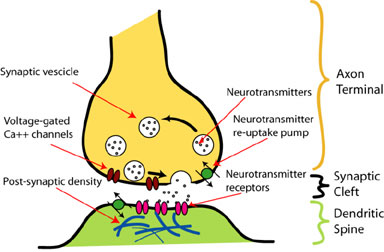Narcissistic Rage and the Sense of Entitlement
While the manic phase in what is commonly known as 'bipolar disorder' usually involves manic flight into grandiose fantasy and impulsive behavior, on occasion it leads to rage, violence, suicide and even murder. The DSM-IV refers to this as "dysphoric mania" or a mixed state, where manic and depressive symptoms occur simultaneously. Outbursts of rage also occur in other disorders: they feature in Intermittent Explosive Disorder, Borderline Personality Disorder, Narcissistic Personality Disorder and various types of narcissistic behavior; anyone dominated by feelings of shame may be prone to occasional outbursts of rage, which are often an intense form of blaming, one of the primary defenses against shame. While the DSM-IV defines these disorders as unique categories of mental illness, with individual diagnosis codes, they actually exist along a spectrum and have much in common. Most of the clients I've seen who demonstrated features of Borderline Personality Disorder or presented with Bipolar Disorder symptoms also displayed features of narcissistic behavior, often involving outbursts of rage.
In other posts, I've talked about the function of hatred and anger as a kind of psychic glue in the face of disintegration anxiety; I've tried to make room for the idea that rage, as destructive as its external effects may be, sometimes serves a positive psychic function when the alternative is the terror of a kind of psychic death. Likewise, rage may function as a defense against shame that feels unbearable. These two are connected: shame, as I discussed in my early post on basic or toxic shame, is the emotional expression of our sense that we are damaged; that sense of damage can mean that the self is felt to be in pieces, in danger of collapse. Hatred, anger and rage serve a defensive and cohesive function for these conditions, especially when there has been a narcissistic injury to one's sense of self that stirs up unbearable shame.
Narcissistic rage may also express a frustrated sense of entitlement, by which I mean the feeling that one has a right to be given something which others believe should be obtained through effort, and unrealistic expectations of favorable treatment or automatic compliance with one's expectations. While this is a characteristic feature of Narcissistic Personality Disorder, I've seen it in every borderline client I've treated, and in many clients with Bipolar Disorder symptoms, as well. A sense of entitlement reflects an inflated view of one's own importance and rights, which features intermittently in many psychological states of mind. No doubt you've known people who express this sense of entitlement, whether or not they fit into any of the diagnostic categories with which we've all become familiar.
